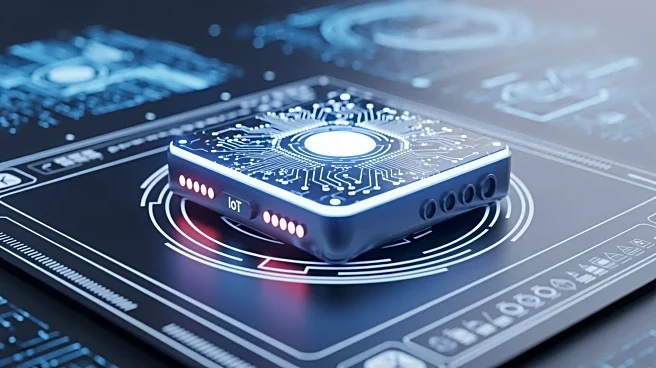What's Happening?
Silicon Labs, a leader in low-power wireless technology, has announced the launch of the Simplicity Ecosystem, a suite of modular software tools designed to transform embedded IoT development. The ecosystem
is anchored by Simplicity Studio 6 and includes the Simplicity AI SDK framework, which aims to unify installation, configuration, debugging, and analysis into a single intelligent environment. This development is intended to provide automation and insight at every stage of product creation, enhancing the developer experience with AI-powered collaboration. The ecosystem supports Silicon Labs Series 2 and Series 3 devices and major IoT standards such as Bluetooth LE, Zigbee, Thread, Matter, Wi-Fi, Wi-SUN, and Z-Wave.
Why It's Important?
The introduction of the Simplicity Ecosystem is significant for the IoT industry as it promises to streamline the development process, making it faster and more efficient. By integrating AI into the development tools, Silicon Labs is setting a new standard for intelligent, context-aware development environments. This could lead to increased innovation and productivity in IoT applications, benefiting device makers and developers by reducing overhead and startup time. The ecosystem's modular design allows for flexibility and adaptability, which is crucial in the rapidly evolving IoT landscape.
What's Next?
Silicon Labs plans to release the Simplicity AI SDK for public access in 2026, starting with developer feedback and beta testing. This SDK will further enhance the ecosystem by enabling AI-augmented workflows, allowing developers to 'chat with their code' and receive real-time insights and suggestions. The company is focusing on dynamic context engineering to provide AI agents with the right data at the right time, which will support adaptive debugging, optimization, and application generation. Developers can join the early access waitlist to receive updates on the SDK's progress.
Beyond the Headlines
The launch of the Simplicity Ecosystem could have broader implications for the IoT industry, potentially influencing how developers approach embedded system design. The integration of AI into development tools may lead to a shift towards more automated and intelligent design processes, where creativity and precision coexist. This could also impact the competitive landscape, as companies that adopt these advanced tools may gain a technological edge over those that do not.










